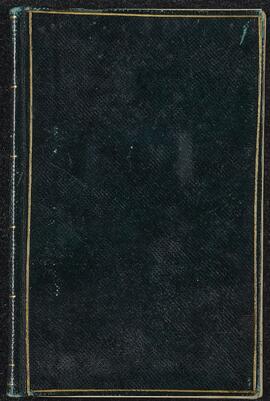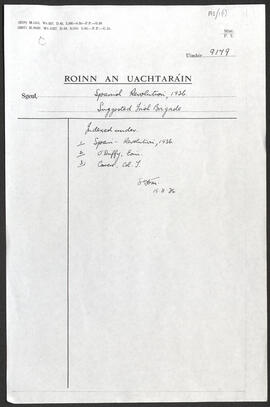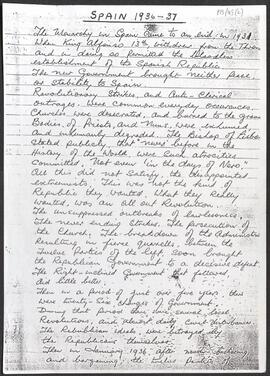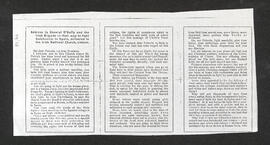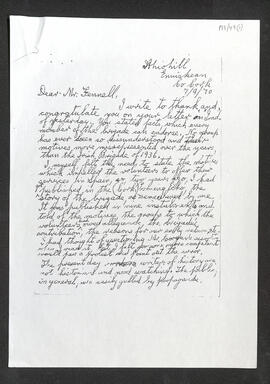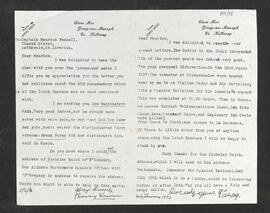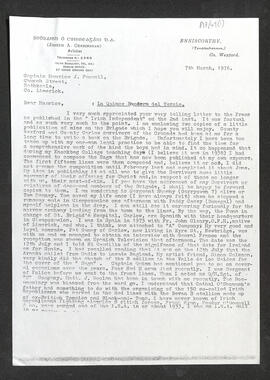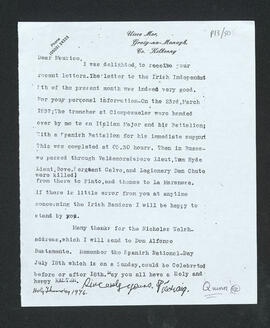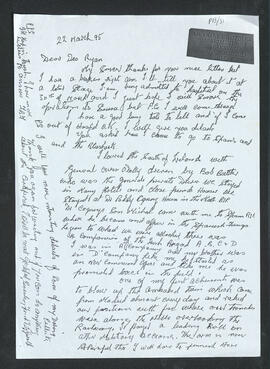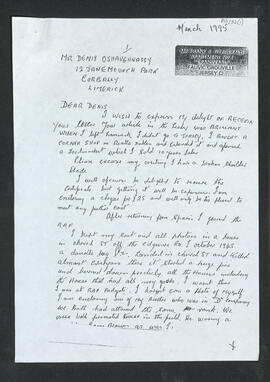Journal kept by Harriet Marshall née Swayne during a voyage from Allahabad, Uttar Pradesh, India with her two children to visit her in-laws in England and Ireland. The journal commences on 9 January 1847 with her arrival in Calcutta, where she spends the rest of the month waiting for the commencement of the next leg of her journey on board the vessel Alfred. While in Calcutta, she visits old friends and old scenes, having lived there eight years previously: ‘I had left Calcutta a child and returned a Woman and a Mother, how little had I fancied when I bade it farewell that I should return thus.’
The bulk of the journal is kept on board Alfred and contains descriptions of Harriet's fellow passengers, daily life on the vessel and the grinding monotony of long sea voyages. There are squabbles among children and endless quarrels among passengers, particularly women. Harriet herself becomes embroiled in a hostile exchange of words with the ship's captain, Edward Wall, who makes a derogatory comment about doctors, unaware that Harriet's husband is an army surgeon.
Remarkably, Harriet does not suffer from sea sickness even in the roughest of weathers, and has no patience for those who do. She does, however, regret having allowed herself ‘to be talked into taking a Cabin below [deck]’, where the air is stale as the port holes can only rarely be opened. She also regrets having chosen to travel by sea and concludes that ‘I will undergo any inconvenience & rough travelling rather than come back by sea to India[.] in an Overland trip there is something stirring every day, but here we breathe an impure atmosphere & when we do go upstairs it is only to walk up & down… nothing stirring but the ship’.
Alfred arrives on the island of Saint Helena on 30 March and the passengers get to enjoy a rare break on land. On 31 March they make an excursion around the island, which Harriet describes in great detail, including her disappointment at the shabby state of Napoleon Bonaparte's home. The journal ends with an entry made on 1 April as Alfred weighs anchor and leaves St Helena for England. Harriet's last lines read: ‘now I must go on with my Journal on sheets of Paper till we arrive in England.’ These loose sheets do not appear to have survived, and the fate of any of Harriet's other journals is unknown.
The journal is a useful research source for life in the service of the British Empire and the challenges of ocean travel. More broadly, it provides interesting insights into the lives of women and children in the nineteenth century and the societal mores that defined and separated the sexes.
Marshall, Harriet Susan née Swayne (1826-1909)